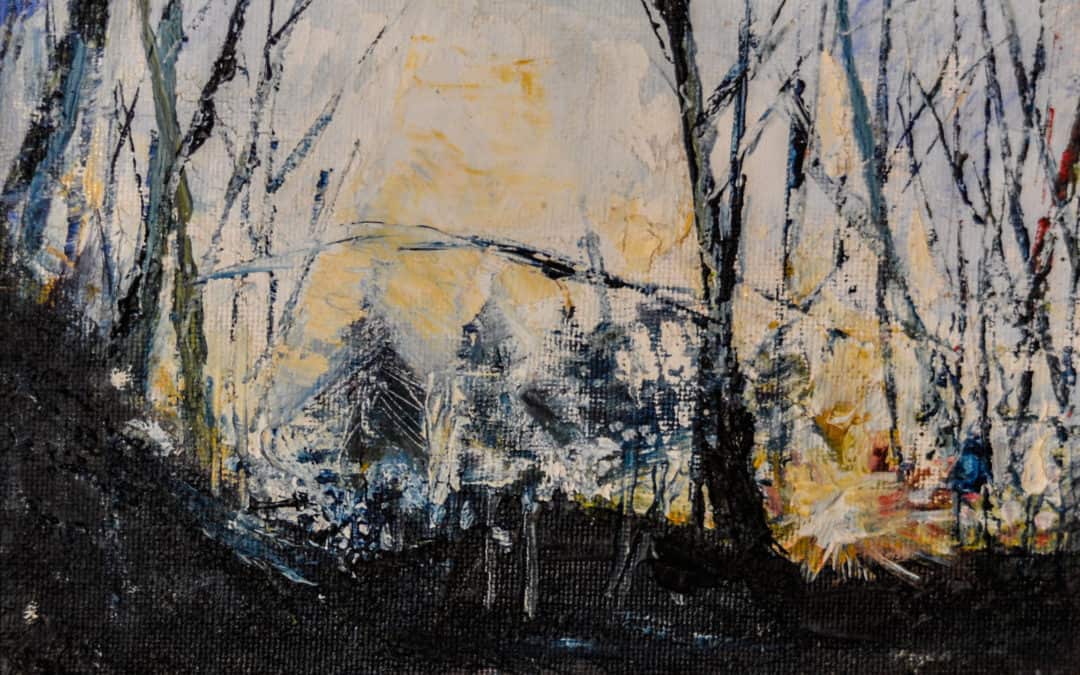What’s this?
Do you ever feel a tinge of melancholy when the weather changes, even when you’re excited for the new season? Or just in general, when something in your life is changing, whether good or bad, do you feel a little uneasy? Maybe your circumstances are taking a huge, positive leap forward, and there’s some nostalgia for the struggle you’ve grown used to, oddly enough. This may be the experience of ambiguous loss.
Nature provides rich metaphors to us all the time and the change of seasons to fall reminds me that with every ending there is a beginning. As the warmth of summer fades away, we soon welcome the bright colors in the beautiful mountains of Western North Carolina. We have our own individual feelings about the change of seasons. What may be a loss to one person is a cause for celebration to another. I heard a friend say, “I wish I swam more this summer” and I heard another express gratitude for “sweater weather”. Change brings with it the cycles of new and old; death and life; celebrating and grieving. This constant juxtaposition of opposites provides the richness of life.
In their book, How to Survive the Loss of a Love, co-authors Peter McWilliams, Harold Bloomfield, and Melba Colgrove outline types of losses. They categorize obvious loss, not-so-obvious loss, loss related to age, and limbo losses. I notice some similarities in how we respond to changes in nature as we do with seasons of life and loss. What is nourishment to the spider can be deadly to the fly. Because of our varied life experiences and our inherent natures, we react uniquely to seasons in life. We have unique resiliency to losses. What sinks my ship might be a mere breeze in your sails, and vice versa.
Kinds of Losses
There are a lot of obvious losses that people experience in life. And most people respond in a similar way to more tragic, severe, catastrophic loss – such as the death of a loved one. We also lose a relationship in a breakup, a job, or a source of income when we are laid off, fired, or quit working. These are tangible losses. We can literally observe their absence from our daily life with our five senses because it concretely was here one day, and it is not here the next.
There are also less obvious losses. These are losses that we feel and experience in a real way, but their cause may not be quite as observable. We couldn’t reach out and touch a time in the past, for example. But we can certainly feel, on a visceral level, that it is gone.
The losses related to aging can include loss of childhood dreams, loss of innocence, loss of a first love, leaving school after many years, growing up and leaving home, loss of youth, loss of beauty, loss of hair, loss of teeth, loss of sex drive, loss of reproductive years, retirement or loss of productivity.
Limbo losses are experienced when we are stuck in time without the answers we want. We are awaiting an outcome with ambivalence, apprehension, hopefulness, and a myriad of other emotions. These losses might include waiting on medical tests to come back, waiting to see if a relationship pans out, the process of a lawsuit, waiting on a business transaction, or putting your house on the market. These involve the uncertainty and the constant question – is this on or is this off? Is this a gain or a loss?
The term ambiguous loss has come to mean losses related to some level of uncertainty, lack of closure, or a sense of longing. Pauline Boss, author of Ambiguous Loss: Coming to Terms with Unresolved Grief, writes, “the greater the ambiguity surrounding one’s loss, the more difficult it is to master [the loss] and the greater one’s depression, anxiety, and family conflict.” These ambiguous losses can be really difficult because there is a lack of a clear, symbolic ritual surrounding the loss. In a culture that struggles to allow the needed healing space for grief, space for ambiguous grieving is even harder to find.
For example, you may miss a person but they did not die, so there is no funeral – no mourning period. Perhaps the loss was never socially recognized and is therefore hidden from others. A person may grieve relationships they did not have such as a grown adult missing a father they never even met. A person could miss siblings as an only child. An adopted child may feel the loss of not knowing their biological parents. Someone who has spent time in prison experiences a loss of freedom. The circumstances that led to loss are perceived negatively by others, and so this individual may not be able to process their grief as safely. Perhaps a person has an extra-marital affair and feels a void when it is over. Again, it may not be socially acceptable for this person to grieve openly, but they have to feel their loss, nonetheless.
I’m outlining some ways I have found it helpful to cope with these less understood and less recognized ambiguous losses. Please look for them in the next blog post. And, enjoy the changes you experience today because they won’t last forever!
“Let the great world spin for ever down the ringing grooves of change.” – Lord Tennyson

